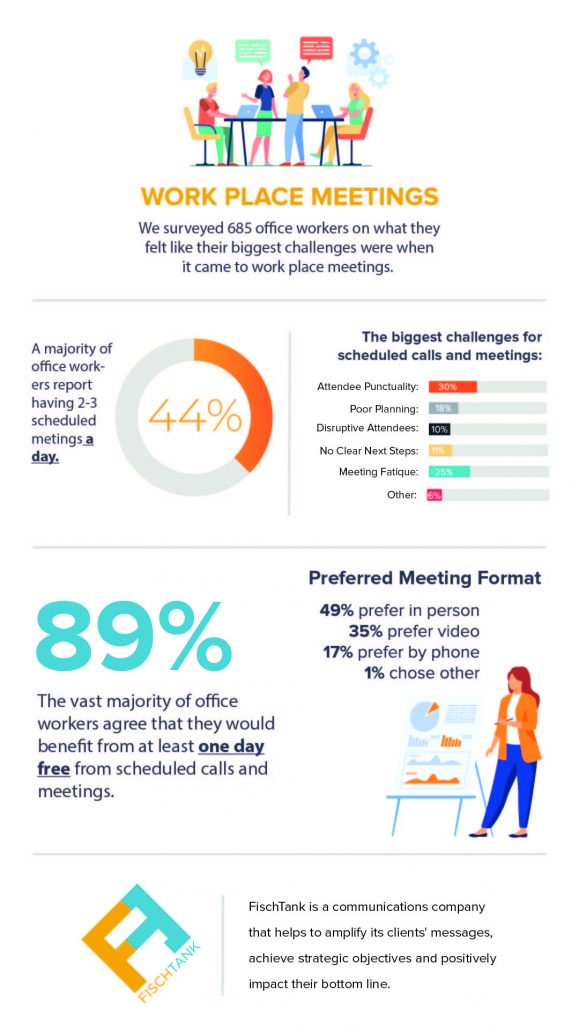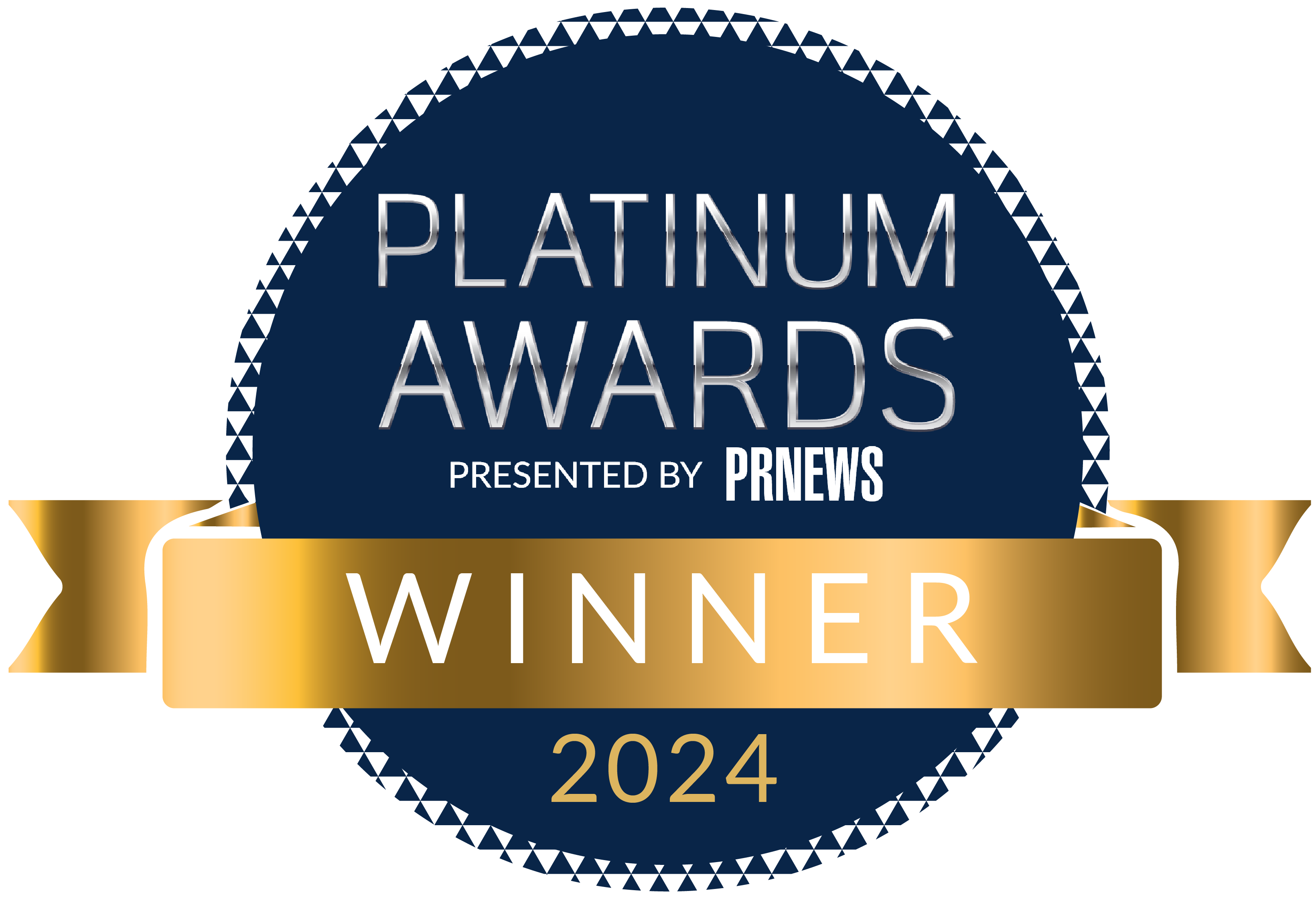As we constantly evolve our working processes and culture, FischTank PR chose to listen first, and commissioned a survey designed to understand highlight the negative impact of meetings on American office employee productivity. Today, we get to announce the results, which showcase the frustration of cumbersome meetings, citing time wasted, meeting fatigue and poor punctuality, as one in five workers report having 4-6 meetings per day. Notably, 90% of respondents reported that they want less meetings in the workplace to enhance their productivity and cut down on wasted time.
The survey polled 685 professionals working in traditional office roles, virtual or in person, but omitting anyone such as a retail or restaurant worker, front line worker, and other jobs that require travel or brick and mortar presence.
Notable findings include:
- Almost 90% of respondents concluded that they would benefit from one day without any scheduled calls or meetings
- 44% of participants reported having 2-3 scheduled calls or meetings a day, and 20% reported 4-6
- Overall, about 30% of employees reported that the biggest challenge for scheduled calls and meetings was attendee punctuality, with the second biggest challenge reported as meeting fatigue (25%)
- When a meeting is necessary, 48% of participants reported preferring in-person meetings compared to video (35%) or phone meetings (16%)
Since the beginning of the coronavirus pandemic and the transition to remote working, our professional and personal lives have been blurred into one. Remote work has introduced a slew of new challenges for office culture and productivity, with most communications taking place virtually and the number of meetings increasing for many. Terms such as “Zoom fatigue” and “meeting fatigue” have become commonplace in our current environment, and as a result, mental health, company morale and efficiency have taken a hit.
During the pandemic, employee burnout reached an all-time high. In fact, a recent study from Robert Half revealed that 44% of employees say they are more burned out on the job today compared to a year ago, and FischTank’s survey is evidence that the amount of meetings is only making things worse, while also offering a solution to help alleviate employee stress.
The simple act of having one day without any meetings can make all the difference for employees, which can result in improved office culture. To this effect, FischTank has implemented a program for “meeting-free Wednesdays,” and thus far experienced progress and initial success. It provides team members with one day a week to catch their breath and be productive free of any interruptions. It also helps team members feel more engaged on days when they have meetings, as they are not as worried about falling behind on other tasks.
“The pandemic challenged businesses of all sizes from startups to Fortune 500 companies to rethink their workplace dynamics and culture, and that starts with listening and putting team members first,” said Eric Fischgrund, Founder and CEO of FischTank PR. “Based on our colleague’s feedback, it became clear that having meeting fatigue was becoming an issue, especially as some were dealing with young children, family members, pets, and other challenges in working from home. We also came to understand that even two meetings/calls per day, what some may consider insignificant, were enough to disrupt creativity, writing, strategic planning, and execution. Of course, a meeting-less day is no guaranteed silver bullet, but we will continue to explore and gauge the results based on our team’s feedback.”
“As we continue to see larger PR, marketing and creative agencies issue releases and leak emails announcing a mandated return to the office for their staff, it’s clear that many companies are not operating with their employees’ best interest in mind. This, despite the pandemic drastically changing their everyone’s day-to-day life and proving that employees don’t need to be in the office to be productive,” said Fischgrund. “The longer this outdated mentality remains, the more talent will be leaving these companies in search of opportunities at organizations that prioritize flexibility and well-being, two core themes of FischTank’s internal culture.”





